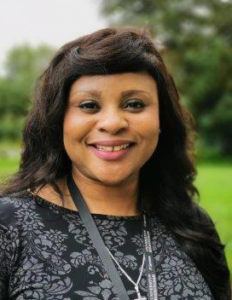 Written by Stella Poole, Equality and Diversity Champion.
Written by Stella Poole, Equality and Diversity Champion.
The Angry Black Woman Myth is a story for another time… This time, let’s talk about racism.
Racism is real – and it’s not just happening in America. It’s happening across the world in many countries, states, cities and communities. Racism is happening in businesses, schools, institutions, neighbourhoods and families.
There is a huge diversity among the people of the world; everyone is different. Each race is special and has its own uniqueness – yet none is superior to the other.
Racism is not just about black versus white – it runs much deeper than that:
- It could be a group of white colleagues picking on the only black or minority ethnic teammate; or a comment or “joke” made – at the expense of a Person of Colour (POC).
- It might be because someone is Asian, Chinese, West Indian or African. Xenophobic prejudice against white minority ethnic groups also exists, but the term “racism” is most strongly linked to skin colour.
- It might be because someone speaks a different language.
- Sometimes it takes the form of bullying and attack – this can be either verbal, physical or online.
- It might involve ignoring someone or refusing to speak to them because they are different, or giving white people preferential treatment.
- Often it is not overt racism – it could be someone not getting a job, or being offered the same professional development opportunities, due to unconscious bias.
Types of racism
Racism can occur in the form of xenophobia, nativism, segregation and supremacism:
- Xenophobia is a dislike or prejudice towards people of other countries. It is a terrible form of racism and lives are often endangered
- Nativism is another form of racism and it is gradually becoming a norm in our societies. It involves favouring members of your race or social and ethnic group over others. A person decides to promote the interests of the people of his race
- Segregation is a form of racial discrimination that existed in America for so many years until 1954. The blacks and whites did not mix. The whites enjoyed so many privileges that the ‘coloured’ did not
- Supremacism is the feeling of being superior to other races. People in this category believe that certain people do not deserve certain privileges due to their race.
All these ideologies and behaviours are extremely wrong. The colour of our skin or our ethnic group does not determine who we are.
Racism is not about politics; it is about humanity. Human kindness starts with each of us. We can‘t change the entire world, but we can start by changing our neighbourhoods and our communities to ensure a better future for the next generation.
We are on a journey which will require a lot of conversations, some of which will be uncomfortable and challenging for all involved. We ask our colleagues to join us on this journey in challenging racism and helping us to hold our people and ourselves to account.
How do I report racism in the workplace?
The University has an official Grievance process for staff for follow if you need to raise a complaint. This takes the form of an initial informal complaint, which you can escalate to HR if you don’t find the resolution satisfactory.
There are also other, less formal, options for support.
- Within IT Services, our Equality & Diversity (E&D) Champions, Stella Poole and Rai Furniss-Greasley can offer confidential advice and signposting to relevant information, processes or teams.
- You should speak to your line manager if you experience racism in the workplace. If you don’t feel comfortable doing so for any reason, the E&D Champions are here to help.
- The BAME Network has three welfare advisors listed on their “Who are we” intranet page. You can contact the Welfare Advisors regarding any welfare issues you experience, and they can signpost you to relevant services available at the University. They also act as third party reporters for hate crime against University staff.
How can I help in the fight against racism?
We can all help, when it comes to the fight against racism. Here is a small selection of the many resources available to support this.
- Black Lives Matter: Originally founded in response to the acquittal of George Zimmerman after the death of Trayvon Martin, the organisation continues to fight for justice for black people who have been victims of violence ‘by the state and vigilantes’.
- 5 ways to start being a better ally for your black coworkers
- 10 ways white families can teach their kids about race consciousness
- Read up on racism and how you can help to tackle the issue:
- How to be an antiracist, Ibram X. Kendi
- White Privilege, Kalwant Bhopal
- Why I’m No Longer Talking to White People About Race, Reni Eddo-Lodge
- Support local black-owned businesses: Black2Business UK
- Amnesty International’s petition for justice for George Floyd
- The Okra Project: A collective that seeks to address the global crisis faced by black trans people by bringing home cooked, healthy, and culturally specific meals and resources to black trans people, wherever the collective can reach them.
Look out for future features from IT Services’ Equality and Diversity Champions, Rai Furniss-Greasley and Stella Poole.
